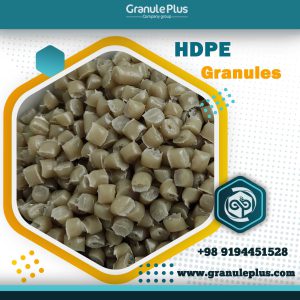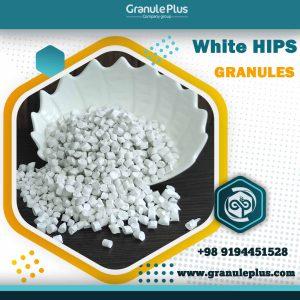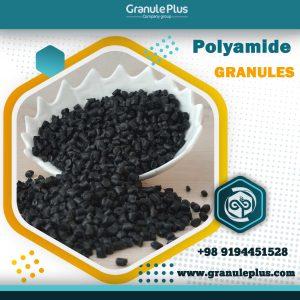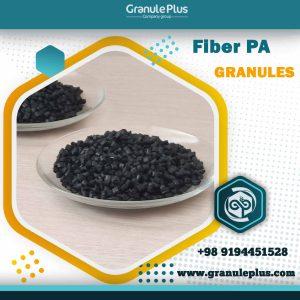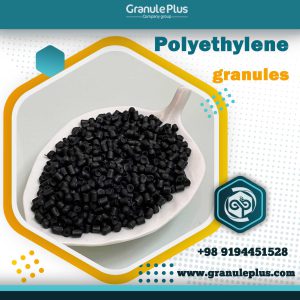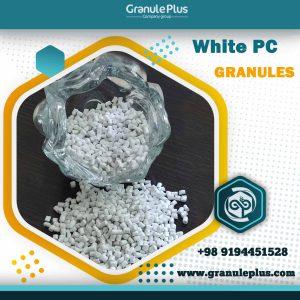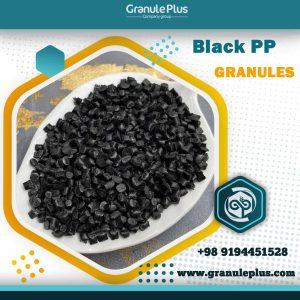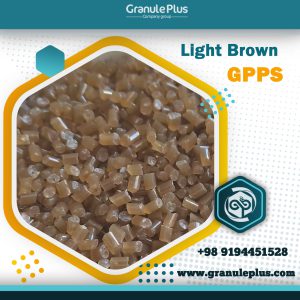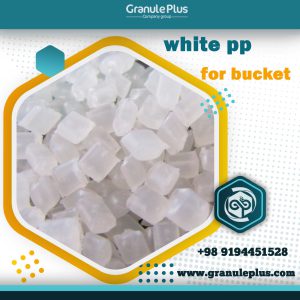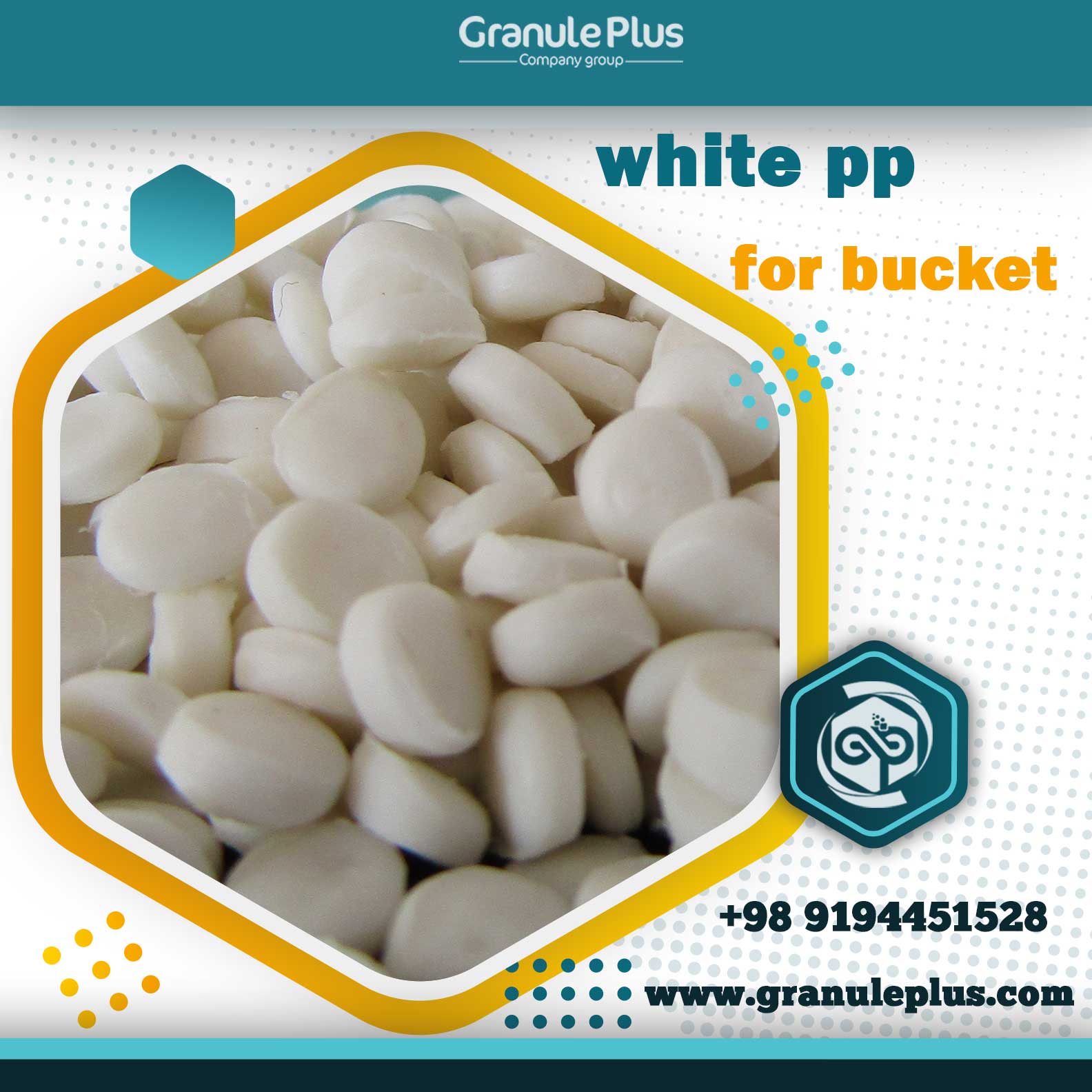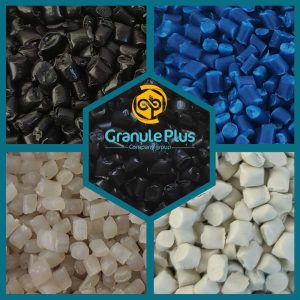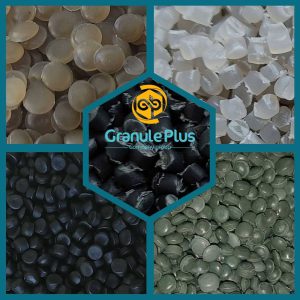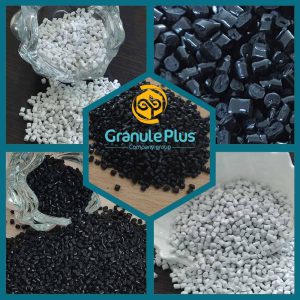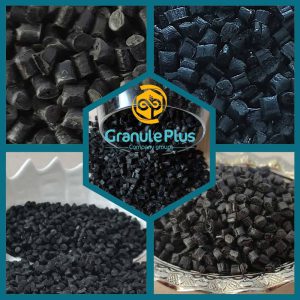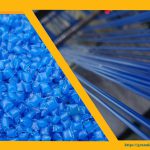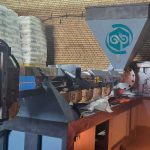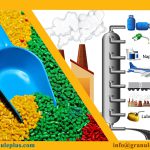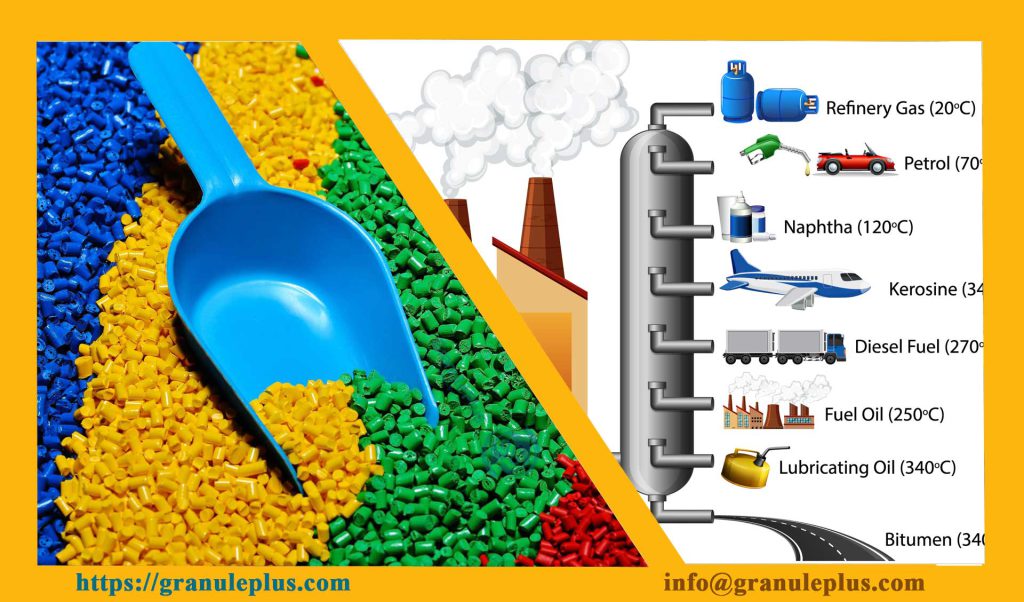
- Granuleplus
- March 24, 2024
- 12:00 pm
- No Comments
How is plastic made
Plastics are a class of versatile materials that have thousands of uses and each type has its mechanical properties. But how is plastic made? In today’s world, plastic materials make up many of our everyday products. From kitchen appliances to stationery, from car accessories to household appliances, everything is made of plastic. But have you ever wondered how plastic is produced? Plastic is one of the most widely used materials in our daily lives, which is present in most aspects of our lives.
The importance of plastic nowadays cannot be denied; Because this material brings unique advantages to global societies. From the ease of production and processing, lightness, and high strength, to the ability to recycle and reuse, plastic as a multi-purpose material is used in many different industries and fields. For this reason, the production of plastic materials is one of the basic industries. The world has changed. If you are also interested in how plastics are made or want to work in this industry, you can learn everything you need to know about the production and types of plastic materials by reading this comprehensive guide.
Plastic manufacturing process
Plastic production is a multi-step process that generally consists of the following steps:
1. Extraction of raw materials:
Crude oil: The main source of plastic production is crude oil. Crude oil is extracted from the ground and transported to refineries.
Natural gas: In some cases, natural gas is used as a substitute for crude oil for plastic production.
Coal: Coal can also be used as a carbon source for plastic production.
2. Refinement:
In the refinery, crude oil is separated into various components such as hydrocarbons.
Hydrocarbons are transferred to petrochemical units.
3. Polymerization:
In petrochemical units, hydrocarbons are converted into larger molecules called polymers.
The polymerization process is carried out in different ways such as radical polymerization, ionic polymerization, and copolymerization polymerization.
4. Additives:
Various additives such as dyes, flame retardants, lubricants and stabilizers are added to polymers.
These additives change the properties of plastic and make it suitable for different applications.
5. Shaping:
The plastic extruder is one of the methods that produce parts with different shapes and dimensions. Molten plastic is injected into various molds to form different shapes such as bottles, bags, pipes and car parts.
There are different methods for plastic molding such as injection, extrusion, blow molding and compression.
6. Cooling down:
After forming, the plastic is cooled and becomes the final product.
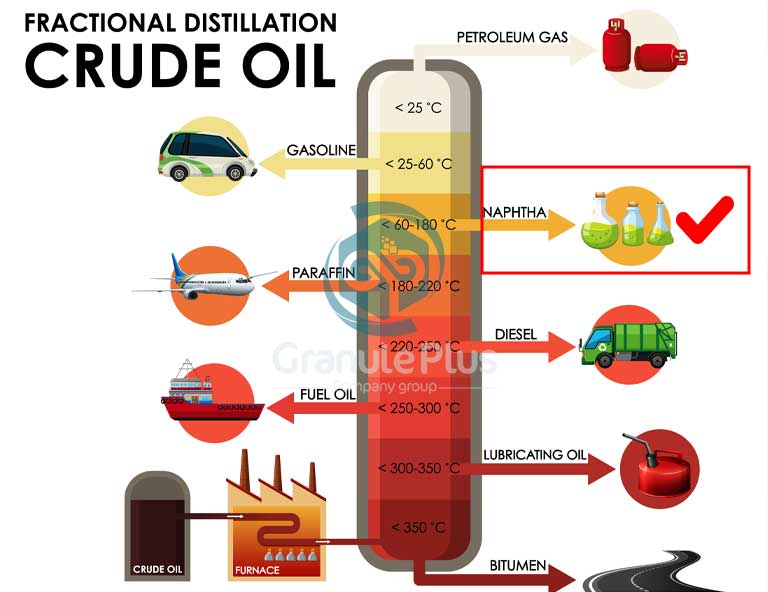
The process of making plastic from crude oil
In this part of the article, we will examine the important stages of plastic production from crude oil. Making plastic from crude oil is a complex and multi-stage process that requires expertise and modern technology.
1. Crude oil oxidation: Crude oil is first converted into gases and light petroleum products.
2. Converting gases into monomer materials: In this step, the produced gases are converted into plastic raw materials or monomers.
3. Polymerization: Monomers react with each other to form longer chains or polymers.
4. Plastic production process: After polymerization, the final materials are molded to produce different plastics.
It shows the basic steps of plastic production from crude oil. This complex and specialized process requires high precision and technical knowledge to produce quality and resistant plastic for various uses.
Preparation of plastic raw materials
In the process of making plastic, an important step is the preparation of raw materials. Plastic is produced from crude oil as a primary source. Crude oil is extracted from the mines and then sent to the refinery. Here, crude oil is converted into plastic raw materials through various refining processes, such as distillation, cracking, and polymerization.
Different types of plastics with different properties and uses are produced at this stage. For example, polyethylene, polypropylene, and butadiene plastics are obtained from these processes.
The preparation of plastic raw materials is a vital component of the plastic production process, which requires precision and the use of advanced technologies. Choosing the right raw materials and performing the refining processes correctly to produce high-quality plastics is very important.
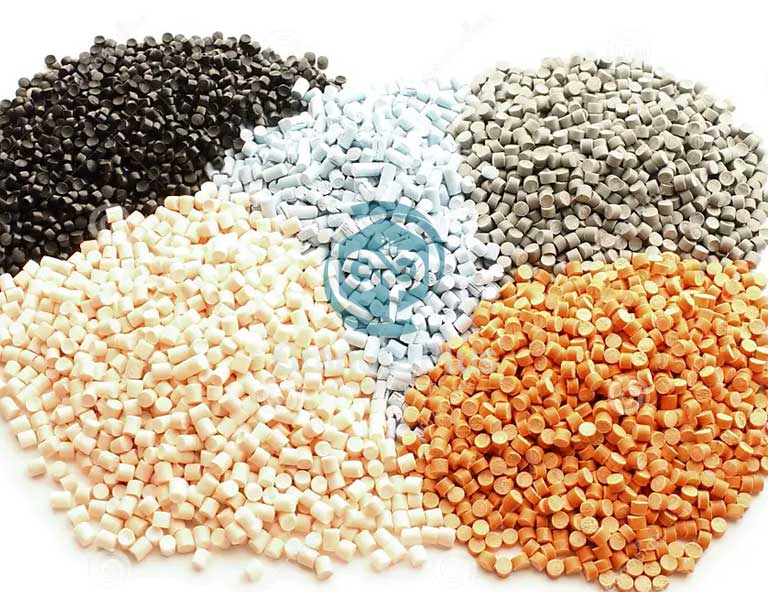
Polymerization process
In this main stage of plastic production, the polymerization process takes place. Polymerization is a chemical process in which small molecules called monomers are joined together to form longer chains and polymers. This process may take place under specific reaction conditions and may require the presence of catalysts, heat, or pressure.
When the monomers combine, a chain reaction starts and gradually the chains grow to the length needed to create the desired plastic. It is a vital process that determines the final characteristics of the produced plastic, including resistance, flexibility, transparency, and color.
Upon completion of the polymerization stage, the resulting plastic must be properly processed and can be produced in various shapes and sizes to meet the needs of various industries and uses. This stage of the plastic production process shows the high complexity and expertise of chemical engineering, which is important for improving the performance and final quality of plastic products.
Types of plastics and their uses
In today’s world, plastic is known as one of the most used and vital materials in various industries. Various types of plastic raw materials have wide applications that are used for various purposes based on their characteristics.
Plastics can be divided into two general categories based on their hardness:
Thermosets: Thermoset plastics harden when heated and cannot be remelted. They are usually harder and more brittle than thermoplastics. Some examples of thermoset plastics are:
Epoxy
Phenol formaldehyde
polyester
Vinyl ester
Thermostatic: Thermostatic plastics soften when heated and can be remelted and recycled. They are usually more flexible and less malleable than thermosetting plastics. Some examples of thermoplastic plastics are:
Polyethylene
Polypropylene
Polyvinyl chloride
Polystyrene
1. Polyethylene (PE):
This type of plastic is one of the most widely used types of plastic in the world. Polyethylene granules are used to make plastic bags, pipes, bottles and food containers.
2. Polypropylene (PP):
Polypropylene is a light and resistant plastic that is used to produce bottles, shopping bags, household appliances and car parts.
3. Polyvinyl chloride (PVC):
This type of plastic is used to make water pipes, windows, flooring and other construction products.
4. Polystyrene (PS):
Polystyrene plastic is used in making disposable dishes, kitchen appliances, decorative appliances, etc.
By knowing the different types of plastics and their uses, you can consider the best type of plastic for your consumption and production and benefit from more optimal resources for the production and consumption of plastic.
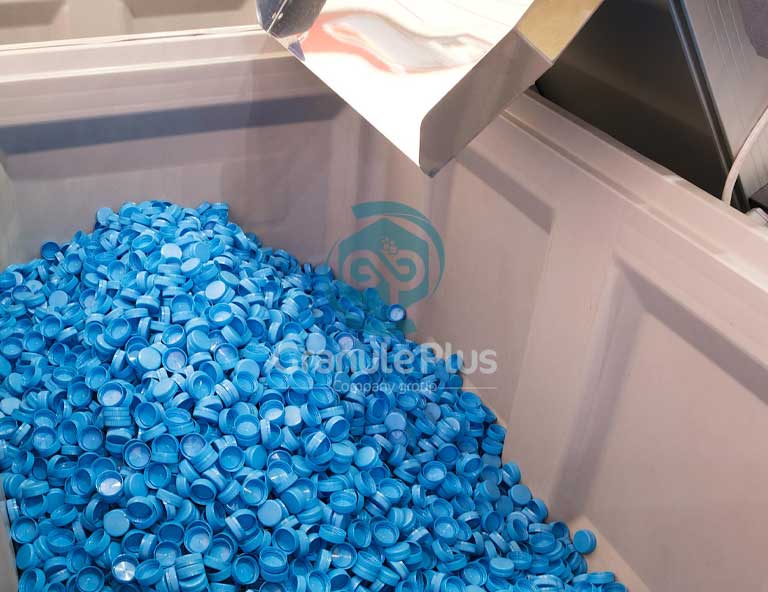
Conclusion
As the previous material showed, the process of how plastic is made and the production of plastic from crude oil is complex and extensive. This requires advanced technologies and precise processes. This industry is very sensitive and has an impact on communities and the environment, and to reduce its negative effects, there is a need to use more sustainable and environmentally friendly methods and technologies.
Among the key points in summarizing the article, we can mention the importance of increasing public awareness about the plastic production process, the importance of using recycled plastic and reducing the consumption of reusable plastic. Also, paying attention to the use of new technologies to improve the production process and reduce environmental pollution is of great importance.
By following these tips and observing environmental principles, you can see an improvement in the plastic production process and reduce its negative effects. We hope that this comprehensive guide to the plastic manufacturing process has helped you gain more information and make better decisions.
Production of recycled plastic raw materials from plastic waste is our specialty. If you are active in the plastic industry and are concerned about the supply and purchase of plastic raw materials, we recommend Granule Plus products and services. To receive purchase advice, please call +989194451528.
WhatsApp: +989194451528
Email: info@granuleplus.com
Telegram : granulplus
Instagram :granulplus

